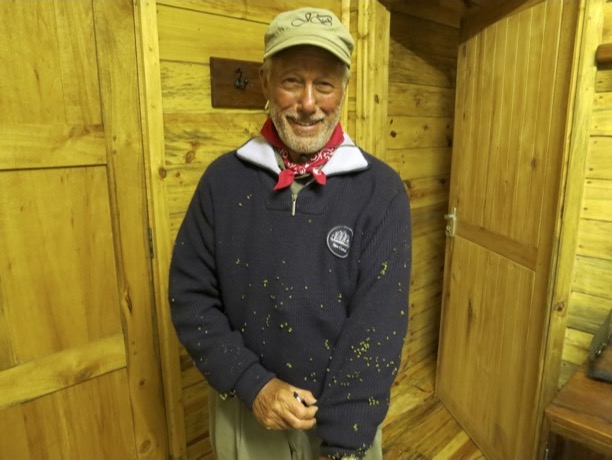"The Road Not Taken" is one of the most-read poems by one of America's most-read poets. It's easy to see why. All of us have stood where Robert Frost stood to consider our major choices in life. Whom shall I marry? What will my life's work be? But for me, at this moment, it brings to mind two great poets who chose different paths, and how that turned out.
Ezra Pound and William Butler Yeats knew each other well. And both wanted to change the world as they lived in it a century ago. But how to do that? Pound, the P.T. Barnum of Modernism in poetry, founded literary magazines and movements. As an early promoter of Joyce, Eliot and Frost, he set American poetry on the course it was to follow for the next century.
But this supremely confident man, who knew what to do and how to go about it in the poetry world, was completely unhinged when it came to the rest of the world. He tried to make poetry do everything, to make poetry the lever that would move the world. But what came out was a compost of Fascist rant, anti-Semitic raving, and crackpot economic theory. His wartime addresses in support of Mussolini landed him in an Allied prison camp at the end of WWII. In lieu of a treason trial he was committed to the prison ward of a hospital for the insane. Twelve years later he was released, and for the rest of his long life barely spoke or wrote again.
Who can know what was in his mind, but to me Pound's act of silence was the equivalent of Oedipus putting out his eyes when he saw what he had done.
Compare this with Yeats, who chose a different way to change the world. The events of Irish independence from Britain swept up both Yeats the poet and Yeats the patriot. But unlike Pound, Yeats saw the world of poetry and the world at large as separate and dealt with each on its own terms.
He wrote great poems about the events of his day; he used his stature as a leading poet to get involved; he then worked, not as a poet but as politician and administrator to influence those events. Yeats, on being asked for a war poem, responded with "On Being Asked for a War Poem."
I think it better in times like these
A poet's mouth be silent, for in truth
We have no gift to set a statesman right;
He has had enough of meddling who can please
A young girl in the indolence of her youth,
Or an old man upon a winter's night.
Yeats, an elected member of the Irish senate, presumably saw in the poet the citizen at the end of the world.

